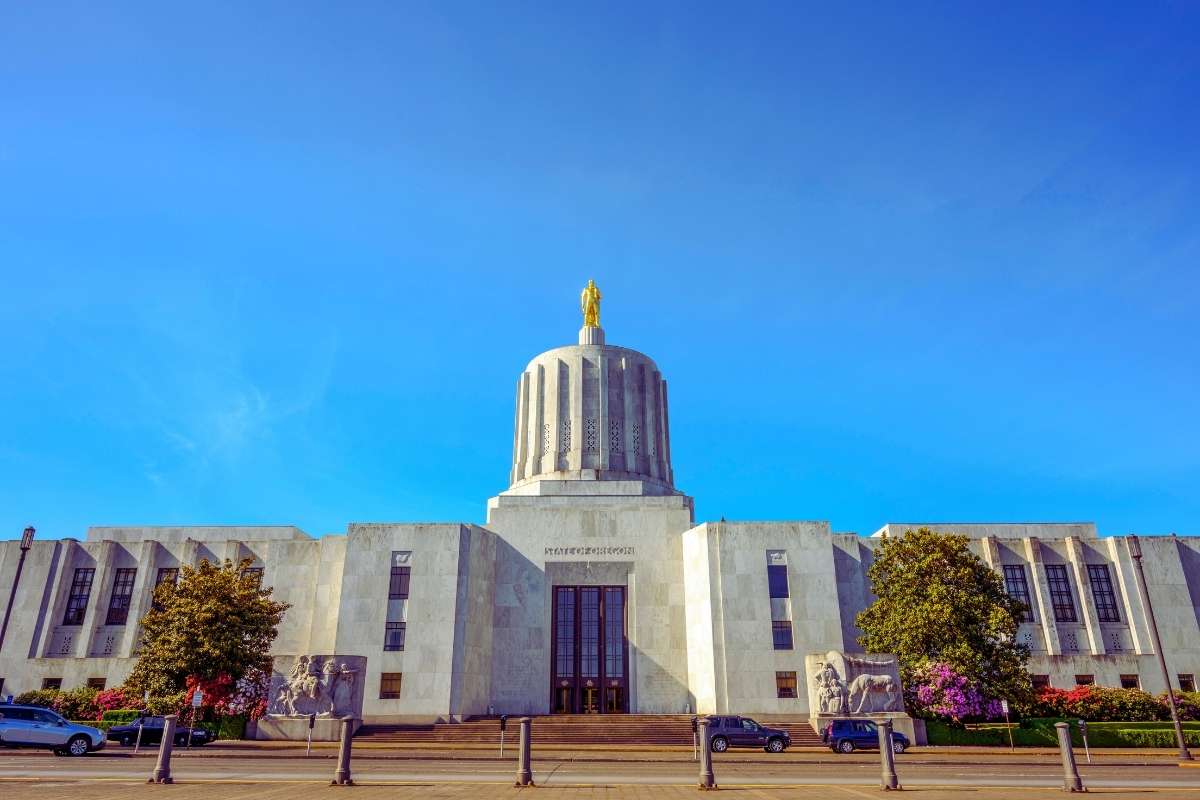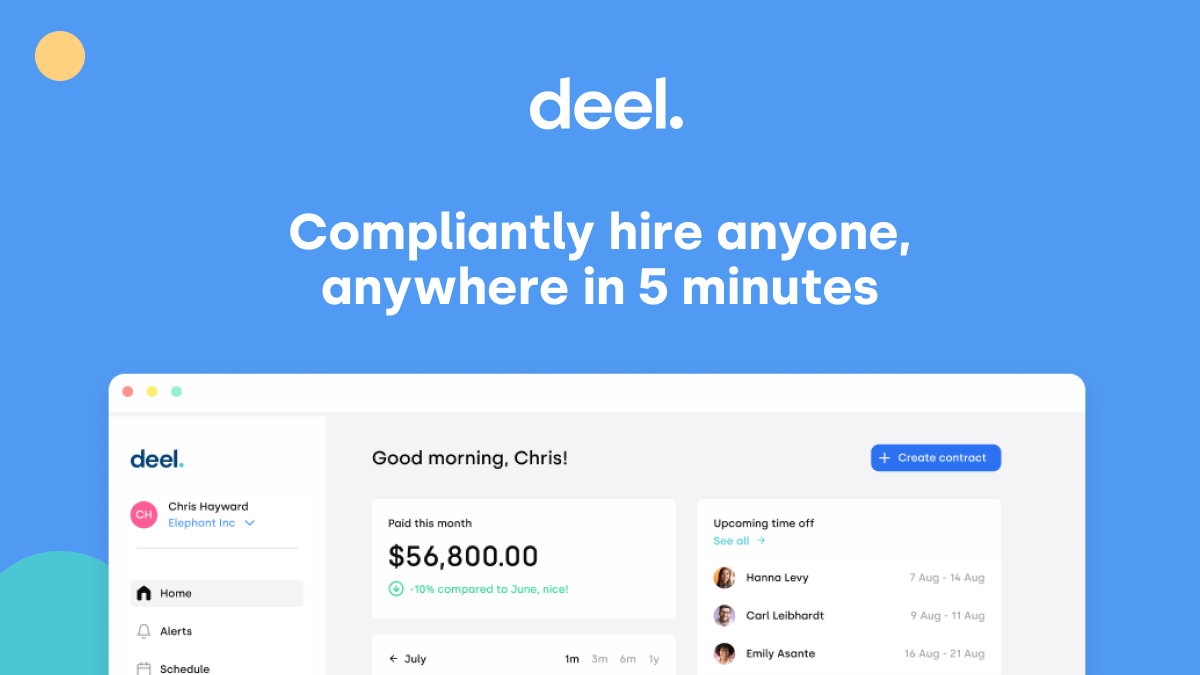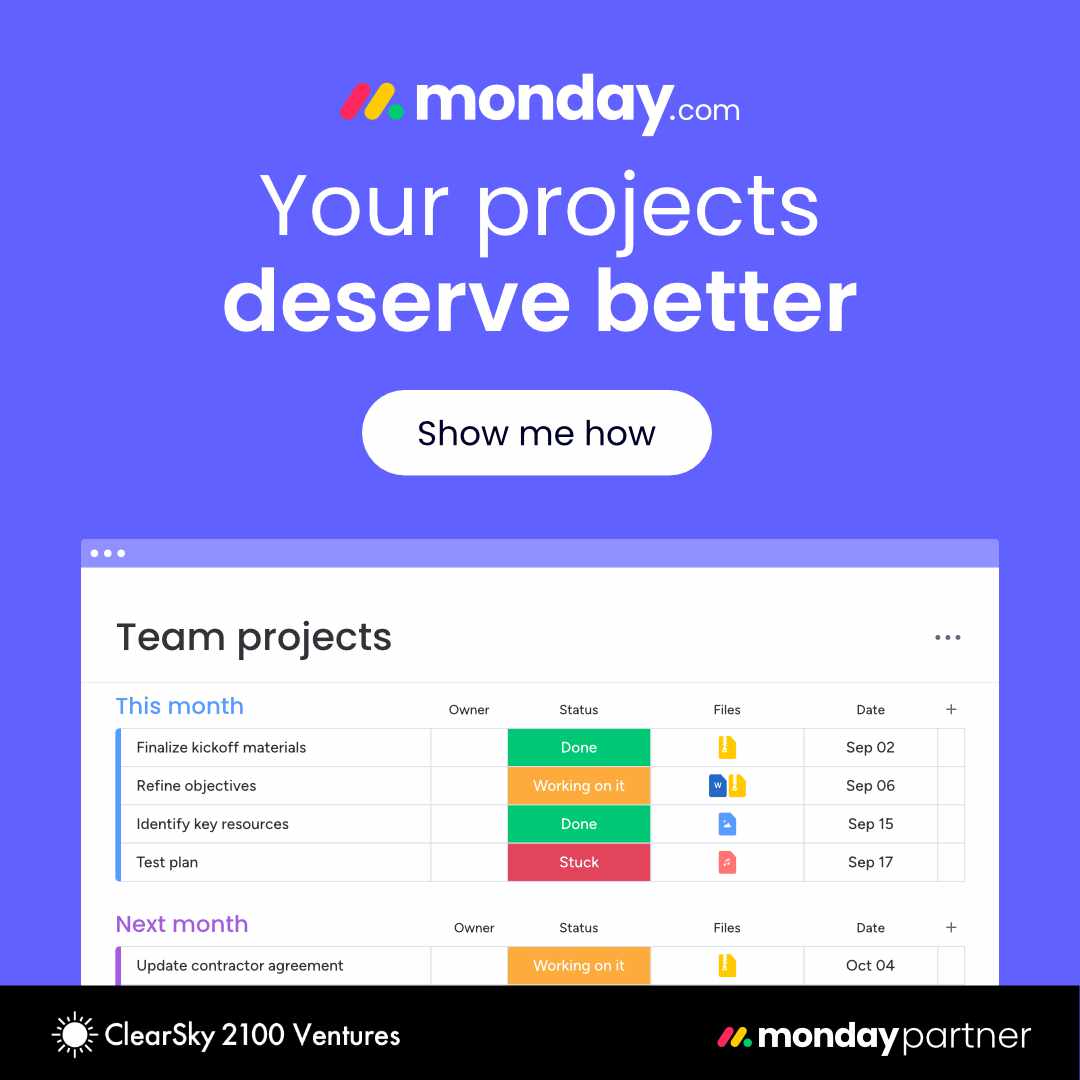Many of us leave our jobs for various reasons, whether to escape a toxic environment, jump to another organization, or start our own venture. However, leaving a job can be a complex process. It becomes even more intricate when a Non-Disclosure Agreement (NDA) is involved. An NDA is a legal contract. It binds you to secrecy concerning certain information you’ve gained during your employment. But what happens to this agreement when you decide to resign or are terminated? How does it affect your future job prospects? And what are the potential consequences if you violate it? These are critical questions for both employees and employers. These are critical questions requiring clear answers for anyone considering a job change while under an NDA.
In this article, we delve into these issues. We’ll provide a comprehensive understanding of NDAs in the context of job resignations from both an employee and employer perspective. Whether you’re an employee, an HR professional, or a business owner, this guide will help you navigate the complexities of NDAs when leaving employment. Be sure to follow us on LinkedIn. Now let’s get started.
What is a Non-Disclosure Agreement (NDA)?
A Non-Disclosure Agreement (NDA) is a legal contract. It’s designed to protect sensitive information shared between parties, usually within an employment setting. Employers use NDAs to safeguard their trade secrets, business strategies, and client details. Similarly, employees agree not to reveal this information to third parties.
An NDA typically outlines what constitutes confidential information. It also specifies the duration of confidentiality and the responsibilities of the parties involved.
Here are some common provisions that might be included in an NDA:
- Definition of Confidential Information: Clearly details what is considered secret.
- Obligations of the Parties: Specifies duties related to protecting information.
- Exclusions: Outlines scenarios where information disclosure is allowed.
- Duration of Confidentiality: Time limit for keeping information confidential.
- Consequences of Breach: Explains potential penalties for violating the agreement.
Understanding these components is crucial. Recognizing the role and scope of an NDA helps prevent unintentional breaches. It ensures that both parties know their rights and obligations.
Legal Basis and Enforceability of NDAs Post-Employment
The legal foundation of NDAs is essential for their enforceability. NDAs are supported by contract law principles, which require a lawful purpose and mutual agreement.
For an NDA to be enforceable, it must not contravene public policy or impose unreasonable restrictions. Courts will scrutinize the terms to ensure they are fair and justified. NDAs remain binding even after employment ends. Their primary aim is to protect sensitive information beyond the tenure of employment. This means employees must honor the NDA obligations long after they leave a job. Enforceability can vary significantly by jurisdiction. Different states or countries may apply distinct rules regarding the legitimacy of NDA provisions.
Recent Legislative Development of NDAs
Recent developments in U.S. regulations have significantly impacted the enforceability and application of Non-Disclosure Agreements (NDAs), especially concerning employee rights and protections. Some of these differences include:
Federal Legislation: The Speak Out Act
On December 7, 2022, President Joe Biden signed the Speak Out Act into law. This legislation limits the enforceability of predispute NDAs and non-disparagement clauses related to sexual assault and sexual harassment claims. The Act aims to prevent the silencing of survivors through contractual agreements, thereby promoting transparency and accountability in workplaces. It’s important to note that the Act does not prohibit NDAs concerning other types of confidential information, such as trade secrets.

State-Level Restrictions
Several states have enacted laws imposing stricter limitations on NDAs:
- New York: Effective November 17, 2023, New York law restricts the use of nondisclosure and non-disparagement provisions in agreements resolving claims of discrimination, harassment, or retaliation. The law prohibits clauses that would prevent the disclosure of factual information related to such claims, aiming to enhance transparency and protect employee rights.
- Oregon: As of January 1, 2023, Oregon amended its Workplace Fairness Act. The amendments would prohibit employers from conditioning settlement agreements on an employee’s request to include nondisclosure provisions concerning discrimination or sexual harassment claims. This amendment ensures that employees are not compelled to remain silent about such issues as a condition of settlement.
In the wake of the MeToo movement, there have been over 12 states that have amended NDA laws. If an employer suspects a breach of an NDA post-employment, legal action may be pursued. Courts can impose penalties, including monetary damages, against employees found violating an NDA. Understanding local legal standards is crucial for both employers and employees to ensure that NDAs can be rightfully enforced.
Key Clauses in NDAs and Their Implications
NDAs contain various clauses to address different aspects of confidentiality. Each clause plays a pivotal role in protecting sensitive information. A common clause is the definition of “confidential information.” This specifies what information is protected, ensuring clarity for both parties involved. The duration clause outlines how long the confidentiality obligations last. It provides a timeframe during which the information must remain undisclosed.
Some NDAs include non-disparagement clauses. These prevent former employees from making negative comments about their ex-employer or its practices.
Additionally, NDAs may have clauses specifying permitted disclosures. They identify circumstances where information sharing is allowed, such as with authorized personnel or as required by law.
Here are some key clauses typically found in NDAs:
- Definition of Confidentiality: What information is covered.
- Duration: How long obligations last post-employment?
- Non-disparagement: Restrictions on negative comments.
- Permitted Disclosures: Specific situations for allowed sharing.
Understanding these clauses is crucial for employees. This knowledge helps prevent unintentional NDA violations, which can lead to legal consequences. Before signing an NDA, consider seeking legal advice to clarify any confusing terms and ensure your rights are protected.
Industry Variations and Types of Information Covered by NDAs
NDAs can differ significantly between industries. The type of business often dictates the specific provisions included in the agreement. For instance, tech companies might emphasize software and patent protection. Meanwhile, the healthcare industry may focus on patient data and proprietary research.
Each industry has unique concerns about the confidentiality of its sensitive information. Understanding these differences is vital for complying with your NDA. Knowing the exact type of information your NDA covers helps to focus on the confidentiality of relevant details. This will guide your actions both during and after employment.

Defense Sector
In the defense industry, NDAs are essential for safeguarding classified information and national security interests. However, their implementation can lead to challenges, such as:
- Balancing Transparency and Security: While NDAs protect sensitive data, they can hinder transparency and oversight, potentially leading to ethical concerns and reduced public trust.
- Complex Supply Chains: The defense sector often involves intricate supply chains with multiple contractors and subcontractors, complicating the enforcement of NDAs and increasing the risk of inadvertent disclosures.
- International Collaboration: Collaborations with foreign entities necessitate NDAs that comply with varying legal frameworks, adding complexity to international defense projects.
Entertainment Industry
NDAs in the entertainment sector are crucial for protecting creative content and maintaining confidentiality. However, they present specific issues, including:
- Overreach and Misuse: There are instances where NDAs are used excessively, potentially stifling free expression and preventing the disclosure of misconduct. This misuse has led to calls for more balanced agreements that protect both proprietary information and individual rights.
- Enforcement Challenges: Given the collaborative nature of entertainment projects, enforcing NDAs can be difficult, especially when multiple parties are involved, increasing the risk of leaks.
- Legal Scrutiny: Recent legal developments have scrutinized the use of NDAs in silencing victims of harassment or discrimination, prompting a reevaluation of their scope and enforceability.
Startup Ecosystems
For startups, NDAs are vital in protecting innovative ideas and maintaining a competitive edge. However, they face particular challenges, such as:
- Investor Relations: Investors may be reluctant to sign NDAs due to the high volume of pitches they receive, making it challenging for startups to protect their ideas during fundraising.
- Broad Applicability: Overly broad NDAs can deter potential partners or employees, as they may feel restricted or mistrustful, hindering collaboration and growth.
- Legal Enforcement: Startups often lack the resources to enforce NDAs legally, making it difficult to address breaches effectively.
Understanding these sector-specific NDA issues is crucial for developing agreements that protect interests while fostering trust and compliance.
Protecting Trade Secrets and Confidential Information
Trade secrets and confidential information form the backbone of many businesses. Protecting these secrets is often critical to maintaining a competitive edge. NDAs play an essential role in shielding sensitive data from competitors. They help ensure only authorized personnel have access to crucial information. The downside of not protecting trade secrets include
- Financial Losses
- Competitive Disadvantage
- Legal Consequenses
- Reputational Damage
- Operational Disruption
Legal protections through NDAs serve as deterrents against unauthorized disclosures. This legal framework fortifies a company’s position in the market. Employees need to understand the weight of these obligations. Fulfilling NDA commitments is crucial for maintaining trust between employers and their staff.
Example of Legal Consequences
Violations of Non-Disclosure Agreements (NDAs) by former employees can lead to significant legal disputes and financial repercussions. Here are three notable cases highlighting such breaches:
Waymo vs. Uber Technologies Inc.
In 2017, Waymo, the self-driving car subsidiary of Alphabet Inc. (Google’s parent company), filed a lawsuit against Uber. The case centered on Anthony Levandowski, a former Waymo engineer who allegedly downloaded over 14,000 confidential files before resigning to establish Otto, a self-driving truck company later acquired by Uber. Waymo accused Uber of using its trade secrets to advance Uber’s autonomous vehicle technology. The lawsuit concluded in 2018 with Uber agreeing to a settlement that included a $245 million financial payout and assurances of not using Waymo’s proprietary information.
Elation Systems vs. Fenn Bridge LLC
In the case of Elation Systems v. Fenn Bridge LLC, a former employee was found to have breached an NDA by misusing confidential information. Although the jury determined there were no actual damages, the appellate court upheld the employer’s right to nominal damages under California Civil Code section 3360, which allows for recovery even when no appreciable detriment is caused.
Eastman Kodak Company vs. Harold Worden
Harold Worden, a former manager at Eastman Kodak, was convicted in 1997 for stealing and attempting to sell confidential company information after his retirement. Despite having signed NDAs, Worden exploited his access to sensitive data, leading to legal action and highlighting the critical importance of enforcing NDAs to protect trade secrets.
These cases underscore the necessity for companies to implement robust measures to safeguard confidential information and enforce NDAs rigorously to prevent unauthorized disclosures.
Consequences of Violating an NDA
Breaching a Non-Disclosure Agreement can lead to severe repercussions. These can range from legal actions to financial penalties. It’s crucial to weigh these risks seriously before taking any action.
Violating NDAs can result in lawsuits that might require the offending party to pay damages. These lawsuits can strain both financial resources and personal well-being, creating significant stress.
Apart from monetary consequences, breaching an NDA may tarnish one’s professional reputation. It can be challenging to rebuild trust with former employers and even future prospects. Additionally, violating an NDA can impact future employment opportunities. Employers value integrity and may hesitate to hire someone with a record of breaking confidentiality agreements.
It’s essential to understand the legal boundaries and obligations imposed by an NDA. Seeking legal advice can provide clarity and help avoid any unintentional breaches, safeguarding your career and reputation.
Negotiating NDAs Before Job Acceptance
When offered a job, reviewing and negotiating the NDA terms is crucial. Employees should not hesitate to ask for clarifications or amendments to the agreement. Understanding the scope of the NDA is fundamental before agreeing to it. Pay attention to clauses related to the type of information protected and the duration of obligations.
Before signing, consider consulting legal advice to ensure the NDA terms are fair and reasonable. An attorney can identify any ambiguous language or potentially harmful clauses.
Engaging in open discussions with employers about NDA terms can foster a mutual understanding. Negotiating favorable terms at the start can prevent misunderstandings and ensure a smooth working relationship.

Ethical Considerations and Employee Rights
Non-Disclosure Agreements raise critical ethical questions about employee rights. Employees often worry that NDAs can limit their freedom to speak about unfair practices or mistreatment.
While NDAs are meant to protect business interests, they should not infringe on personal rights. It’s important for employees to understand how these agreements align with labor laws and ethical standards.
Ethical considerations include balancing company confidentiality with transparency and employee welfare. Employees should be aware of their rights and seek clarity on any ethical concerns regarding NDAs. In cases where NDAs seem unethical or excessively restrictive, seeking legal guidance is advisable. Employees have the right to understand and question terms that might affect their professional integrity or personal rights.
NDAs and Future Employment Opportunities
An NDA can significantly influence your future job prospects. Many companies view NDAs as a critical tool for safeguarding their information. However, they may also impact your ability to work in a similar industry. When bound by an NDA, you might face limitations on the types of roles you can accept. Employers often include clauses that restrict sharing certain information with future employers. Understanding these restrictions is crucial for planning your career move.
If you are considering a new job, be transparent about any NDAs with prospective employers. Open communication can prevent potential conflicts and misunderstandings. Carefully review each clause to ensure it doesn’t hinder your growth.
It is wise to discuss your NDA with a legal advisor before moving to a new job. Doing so ensures you’re clear about your obligations and the potential consequences. Properly navigating NDAs can help maintain professional relationships and avoid legal issues.
Resigning Gracefully Under an NDA
Resigning from a job while under an NDA requires careful consideration. You should aim to leave on good terms, ensuring that all confidentiality obligations are clear. A smooth departure helps in maintaining a positive relationship with your employer.
Begin by reviewing your NDA thoroughly before submitting your resignation. Pay attention to any clauses about handling confidential information post-employment. Understanding these terms will guide your actions during the transition period. During your resignation meeting, be upfront about your commitment to honor the NDA. Discuss any concerns you might have regarding the NDA’s terms. Transparency demonstrates respect for your employer’s interests and might make the process smoother.
Before leaving, arrange an exit interview to clarify any lingering uncertainties. This is also an opportunity to inquire about the return of company property or the destruction of digital files. Handling these details properly ensures compliance with the NDA and protects your professional reputation.
Legal Counsel and NDA Interpretation
Legal counsel plays a critical role in understanding the obligations within an NDA. Lawyers can clarify complex legal terms and identify any potential pitfalls. They provide peace of mind by ensuring compliance with the agreement. However, they can be expensive.
It is crucial to seek legal advice when you first encounter an NDA, particularly if terms seem restrictive. A lawyer can help negotiate terms to better suit your personal circumstances. They may offer suggestions to make clauses more equitable.
Additionally, legal counsel is vital if disputes arise regarding NDA terms or possible violations. An experienced attorney will advise on how best to address accusations. This guidance is essential to avoid unnecessary legal action or penalties.
Don’t underestimate the importance of keeping a legal expert in the loop. They offer insights that ensure you fully comprehend your NDA’s implications. Their expertise helps to safeguard both your legal rights and professional reputation.
While these strategies may be important and viable for senior-level executives, afforaboility can be a challenge for lower-level employees. However, there are various online legal resources that can help employees better understand NDAs.
Handling Confidential Information After Leaving a Job
After leaving a job, handling confidential information becomes a vital responsibility. This includes any documents, data, or trade secrets obtained during employment. It’s crucial to be mindful of what you share and with whom.
Avoid disclosing any protected information in casual conversations or social media posts. Even unintentional slip-ups can lead to severe consequences. Maintaining discretion protects both you and your former employer.
Return or properly dispose of any physical or digital materials that may contain sensitive data.
This includes work-related files, USB drives, and company devices. Consult the terms of your NDA for specific instructions regarding the return of such items.
Finally, keep a record of any significant communications or actions taken regarding confidential information. Documenting your steps helps in showing your compliance with NDA terms. This proactive approach can prevent potential disputes in the future.
Whistleblowing and Reporting Illegal Activities
Whistleblowing can be a sensitive issue when bound by an NDA. It’s crucial to understand your rights in such scenarios. NDAs are not meant to silence reports of illegal activity. If you encounter illegal conduct at your workplace, you may still have the right to report it. This can include activities like fraud, discrimination, or environmental violations. Certain laws protect whistleblowers, ensuring they are not penalized for their actions.
However, navigating the intersection of NDAs and whistleblowing can be complex. Consult a legal expert if you’re unsure about the implications. They can provide guidance on your specific situation and help you act lawfully.
Ultimately, knowing your rights and responsibilities is key when it comes to whistleblowing. This enables you to make informed decisions while protecting yourself legally. Understanding the boundaries of an NDA can empower you to report wrongdoing without fear.
Tips for Managing Information Under an NDA
Effectively managing confidential information is crucial when you’re bound by a Non-Disclosure Agreement. Begin by thoroughly understanding what constitutes confidential information. This helps in identifying what needs protection.
It’s important to keep records of the NDA and any communications related to it. This will serve as documentation if any disputes arise later. Ensure you are up-to-date with any amendments or additions to the NDA terms.
Adhere strictly to the conditions outlined in the NDA. Breaching these terms, even unintentionally, can lead to significant consequences. Develop a system to securely manage and store confidential information.
Here are some practical tips for managing information:
- Use secure methods for storing digital files.
- Avoid discussing sensitive information in public spaces.
- Regularly audit who has access to confidential data.
By following these tips, you can handle sensitive information responsibly. Staying informed and cautious helps you fulfill your obligations without compromising security.
Staying Informed and Seeking Advice
Finally, navigating the intricacies of Non-Disclosure Agreements when leaving a job can be complex. This is particularly the case as layoffs in technology and financial services continue companies transition to an AI future. It’s crucial to remain informed about your obligations and rights under these contracts. Understanding the specific terms can help you manage your responsibilities effectively.
Seeking legal advice is often a wise step, especially if you’re unsure about certain clauses. Legal professionals can offer clarity and help interpret the nuances of your NDA. They can also assist if disputes arise. While individual legal counsel may be prohibitive, there are several online legal sources, such as Law Depot and Creators Legal, that can provide initial guidance and resources to better understand NDAs.
By staying informed and seeking guidance, you can protect yourself and your future opportunities, whether you choose to move to a new organization or become an entrepreneur. This proactive approach ensures you handle confidential information responsibly and ethically.
Disclosure: At ClearSky 2100, our portfolio partly consists of affiliate partnerships. We may earn a small commission from buying links on our site at no cost to you.











